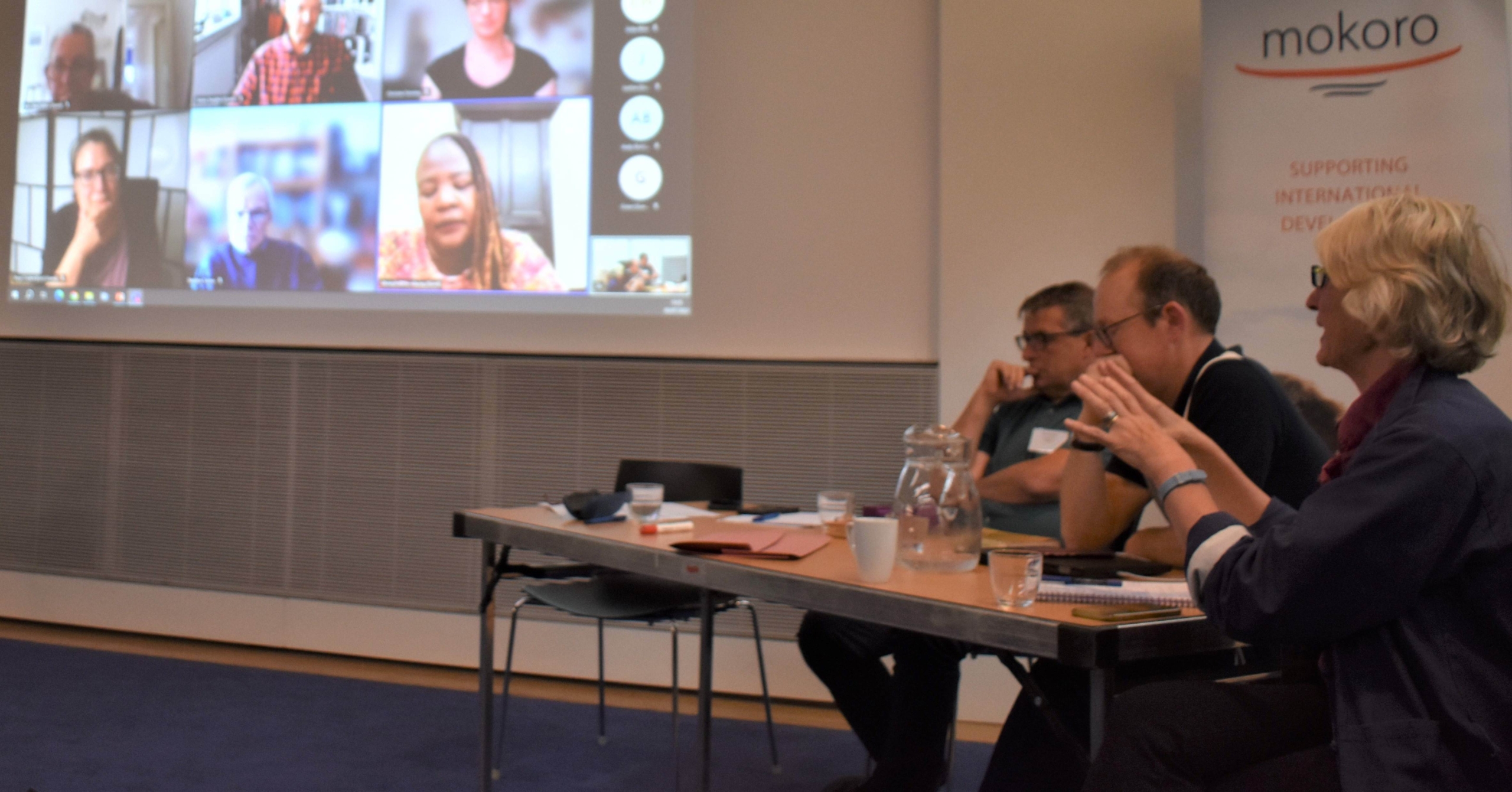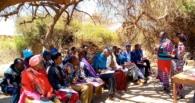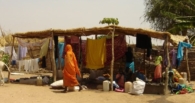The death of geography?
Stephen Turner
22 December 2020
/
- 0 Comments
“You know it’s not really British Africa”, said the man on the British bus. I was nine or ten years old, making my way across town to my primary school, proudly clutching the Atlas Of British Africa that I had painstakingly made for a school project. On each page, a traced map of a different British colony or protectorate on the continent. There was even one of little Basutoland, which was soon to become my home. And of course one of far bigger Nigeria, where I was born and spent the first seven years of my life. The man was gently teaching me political realities of which I knew little at that point.
Was it my international childhood that made geography my favourite subject from such an early age? Or just my nerdy love of making maps, tracing out contours, capes and bays? Whatever the reason, I sailed through school exams in the subject in Eswatini (where, incidentally, our Cambridge mathematics syllabus still required us to master the long-abolished pounds, shillings and pence) – and applied to study it at university in the UK. “Well we don’t really offer geography here”, said the tutor at one college when I went for interview. “Have you thought of doing economics?” I had to admit that I hadn’t. Geography it was, at a different college. And ultimately a doctorate in – you guessed it.
None of this is meant to pretend that I am especially qualified to explore what has been happening to geography as we moved through the first fifth of the 21st century to this strangest of years. But it may explain why I want to think aloud about it as 2020 draws to a close: about ways geography has changed, and ways in which its meaning has deepened.
I even taught the subject at university, for a couple of years. I focused on human geography, a central theme of which is spatial organisation – or, as I used to define it to my students, the way people react to distance. In organising their societies, settlements and economic activities across the surface of the earth, people have always been strongly influenced by the costs that distance imposes. The two dimensions that make a map are a major determinant of the ways people interact: their social, economic and political communication. Whether one is interested in the distribution of different-sized settlements across the American Midwest or the disposition of authority and trade across a colonial empire, the time and expense involved in moving people, things and knowledge from point A to point B have been hugely influential. And, of course, evolving transport and communication technologies have been reshaping that influence at an accelerating pace.
So the 20th century, and this first part of the 21st, have resounded with clichés about how air transport and modern telecommunications have been shrinking the world, homogenising cultures and economies: diminishing distance, in other words, and in many ways thus diminishing difference – although they seem to have done little to reduce global political and economic inequality. Meanwhile, although the cost of intercontinental phone and video calls has been falling fast, and although video conferencing has been a common fact of business life for at least a decade, we have somehow found it necessary to travel more, not less, for our work as well as our pleasure: to bridge those diminished distances by a day or a night in a plane so as to transact our business or enjoy our recreation in far corners of this shrinking world.
And now the COVID-19 pandemic of 2020. For those of us for whom international travel has been a central feature of working life (not to mention holidays), the restrictions this year have been a shock and a stress. Look at me, for example. I won’t bore you with my assorted travels in 2019, but 2020 began with a quick work trip to Timor-Leste, closely followed by a few vacation days at my son’s place in Paris in early March. And then – well, I did travel about 100 km for two nights away a couple of months back when the restrictions were eased somewhat, and later I had one night away about 30 km from home. For the rest: here I am in my house in my suburb, week after week, month after month. My experience of distance has been completely transformed.
Nevertheless, with the audio and video communication systems now so readily available – provided one has a decent internet connection – the world adapted fast (and the likes of Zoom presumably made vast amounts of money). The broad swathes of human endeavour that focus on the exchange of words and ideas mostly managed to stay in business, however stressfully. A two-hour Zoom meeting is nobody’s idea of fun. Scheduling and rescheduling appointments with elusive interviewees in distant countries with intermittent signals is stressful. But we have managed. The kind of development consultancy work that Mokoro does is mainly about words, ideas and numbers: gathering and analysing spoken and written words and data, setting everything out in different forms of words – the many reports that we write. And so – not without a lot of heavy effort, as I have said – the company has been able to keep going through 2020. Sitting at their home desks around the world and hardly ever seeing each other except on their computer screens, the Mokoro team have stayed more than busy and – though I say so myself – delivering quality work. We are privileged to have strong and committed colleagues in some of the countries on which our work is focused, and their role in some tasks has been vital – for example, in arranging a household survey by mobile phone in Kenya. But most of our work has been done remotely. Apart from what we see and hear on our computers, we haven’t met our clients, or the government, donor and NGO people across Africa, Asia and beyond with whom we work so intensively. And we haven’t been to ‘the field’ to meet the people whose economic and environmental challenges our work is supposed to help alleviate.
Does that matter? Perhaps the pandemic has made us realise that geography really is dead, or much enfeebled – that distance means so much less, is so easily overcome at our computer screens, that all that travel around which our working lives revolved isn’t actually necessary, and we can virtuously shrink our carbon footprint as we ‘do development’ from the comfort of our homes?
It matters a lot. As I said before, unacceptable inequality persists on a huge scale across this supposedly shrunken world. Although absolute poverty has been beaten down in some places, the responsibility of the more economically and environmentally privileged to address the dire hardships of the less privileged remains real. I won’t attempt a lengthy treatise here on what ‘development’ is or should be, or about the ethics or technical approaches one should practise in ‘development’ work. All I want to say is that I believe this continuing strong performance via the internet can only be temporary. To do this kind of work well in the longer term, one has to be among the people, the places and the issues. We have been able to carry the work through 2020 because of long experience, hard-earned insights into what life, livelihoods, politics, policy, people are really like in those countries. We have lived and worked there. Weeks or years, that physical presence makes a vital difference. It underpins our credibility when we claim relevance and accuracy for the kind of work we do in ‘development’ consultancy.
So am I saying that we should continue doing evaluations, for example, by sending a couple of people on a short inception mission to country X, and later a bigger team for the main data collection phase, and then one or two people on a third visit to present and debate the findings and recommendations with the partners in that country? Should we get back to being frequent flyers – with all the adverse environmental implications – as soon as possible? No. Operating remotely through 2020 really has shown that there are parts of our work where we can park the realities of geography and perform those tasks quite well from home. But I do believe that our credibility, our value and our relevance depend on continuing our direct, face-to-face engagement with the people, the countries, the concerns that we care about.
Geography, then, is absolutely not dead. Distance, and difference, are still real. We cannot work meaningfully for long by pretending that the world has been shrunk to the size of our computer screens. We need to spend at least some of our working time among the people and the issues that we work on.
And so far I have hardly mentioned the other reasons why geography, in fact, is more alive than ever. As I said, I used to focus on human geography – concerned with spatial organisation, the ways people dealt with distance. For more than a century, the other great branch of the discipline, physical geography, has sought to understand the natural environment and people’s interactions with it. As humanity has gradually come to understand the enormity of its impacts on the earth and its resources, the vital importance of physical geography has been reinforced. Mokoro, like so many others, is now urgently concerned with the environmental sustainability of livelihoods, and all the threats that climate change poses to rich and poor alike. That makes geographers of all of us.
I haven’t traced out any maps lately, although I still love to own and use them. And it’s a long time since I stood in front of students and taught them about theories of spatial organisation. But I can still tell you for sure that geography is more alive than ever.



